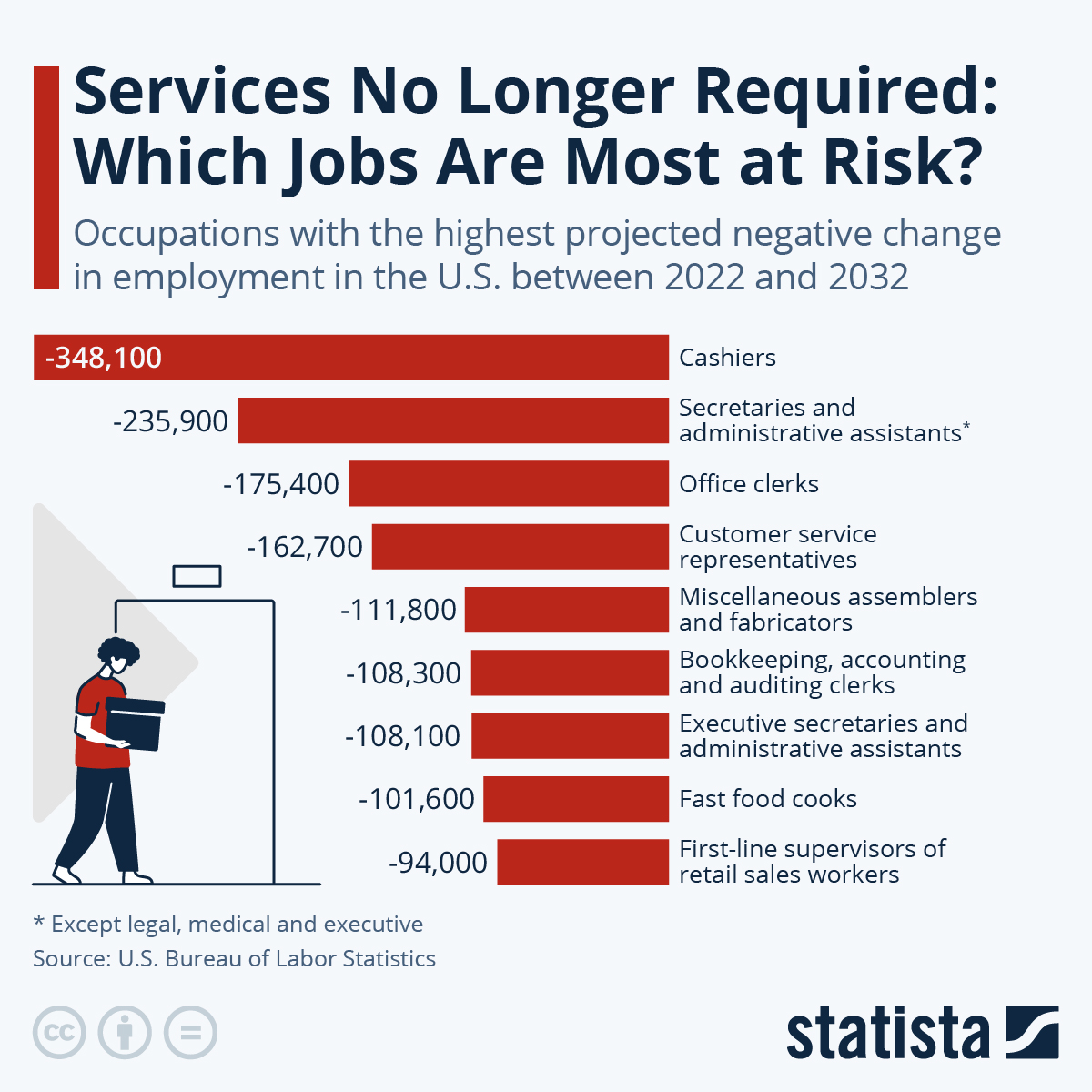Labor shortages are getting more attention lately than possible job destruction, but Statista is looking ahead. They’ve identified the jobs that are most threatened with extinction — or at least serious job loss. For manufacturing, that’s miscellaneous assemblers and fabricators — and of course all the office and customer service staff.

These are predictions from the BLS. We don’t know that these jobs will be taken over by robots or destroyed by AI, but we wouldn’t be surprised. Fast food cooks are certainly threatened by robots, and ChatGPT has already announced that it can do all the clerical tasks in future.
Does it matter?
Automation is expected to disrupt the work world. Some predictions say this will free up the humans to do more creative, interesting work. If that’s what’s going on, then the bookkeeping clerks and miscellaneous assemblers should feel good about the future. Chances are, none of them decided at the age of eight that they really wanted to grow up to be a bookkeeping clerk or a miscellaneous assembler. Getting to do something more creative and interesting should be good news.
Unfortunately, there are also those who predict that people will just be out of work. If the office clerks will be fast food servers putting pickles on the burger prepared by Flippy, it’s not such good news. Automation is supposed to rescue human from dull, dirty, dangerous work, not to doom them to it.
Bold solutions
There are bolder solutions being proposed. Say the world is about to be awash with unemployed cashiers and customer service reps. One solution is the 32-hour work week. By shifting workers to 4-day weeks with no loss of pay, we could employ many more people. Those who favor this solution expect that the 32-hour week will be just as productive as the 40-hour week was when it was first instated.
“American workers are now over 400 percent more productive than they were [in 1940, when the 40-hour work week was made standard] and continued technological advances are likely to increase the gap between worker productivity and worker gains,” said Bernie Sanders. “While weekly wages for the average American worker are actually lower than they were 50 years ago after adjusting for inflation, CEOs are now making nearly 400 times more than what their employees earn. It’s time that working families—not just CEOs and wealthy shareholders—are able to benefit from increased productivity so that they can enjoy more leisure time, family time, education and cultural opportunities, and less stress.”
Massive retraining efforts are another bold solution. Mondo proposes diverting these unemployed humans to jobs like AI Specialists, trained by AI.
Maybe government, education, and industry together can come up with a workable solution before it’s too late.
